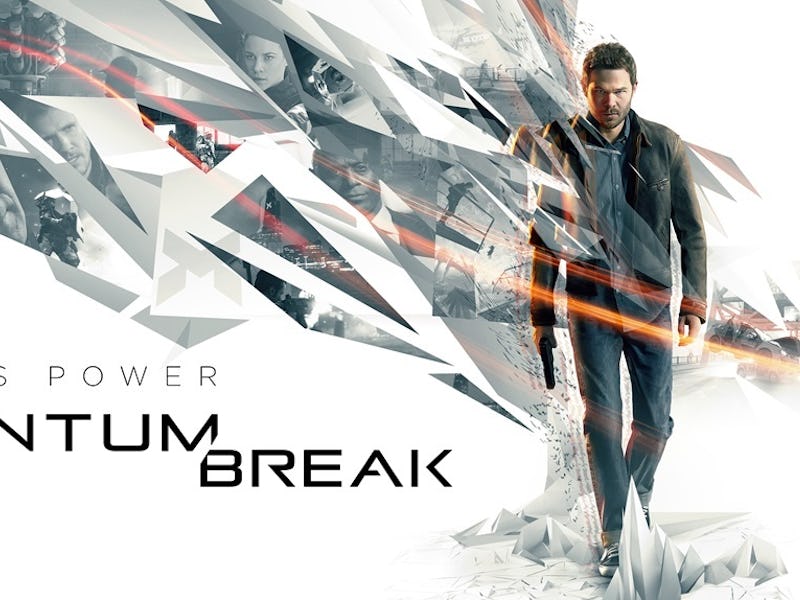How 'Quantum Break' Will Change the Game
To the death of the second screen experience.

The “second screen experiences” of video games and TV shows are, for the most part, bullshit. They either flounder or fail, and at best they’re just more noise. But Remedy Games could outright destroy new interactivity with an old approach.
Quantum Break, a sci-fi shooter game where you manipulate time within spatial pockets, is primed for the Xbox One next April. Altogether its look and setting aren’t so different from other sci-fi stuff, the real mindblower is when you stop playing.
Like a choose-your-own adventure mixed with a Netflix binge, Quantum Break is told half as a game, half as a live-action digital series. In between doing the time warp (again), you get a full 22-minute episode that advances the story. Effectively, you’re playing a video game and binge-watching, thus achieving peak procrastination.
Announced back in 2013, the idea of putting a TV show into a game drew skepticism from journalists and gamers. Serial television had just achieved prestige status, and throwing it into a game felt gimmicky and more of a novel than something substantial. But just two years later, as we’ve further warmed to the idea, it sounds less silly. Comparisons to Defiance, a Syfy show working in conjunction with an MMO, have been made, but the massive difference is that Defiance’s story hasn’t been entirely determined by the gamers who play it. Quantum Break will be, because everyone playing gets something different.
Based on the actions you make in the game, the repercussions are felt in the episodes, which in turn alter the course of the game. The routes you don’t take offer an entirely different experience than the one you first endeavor. As a series, Quantum Break runs at just four episodes (which is about the length True Detective should have run this season), but because of the branching actions and consequences, there’s an unprecedented level of possibility. The replay value, fueled by the curiosity of turning left instead of right, choosing B instead of A, could compel you to stay in for the weekend and see what all Quantum Break could offer. There will be other parties.
The simple reality of being so damn expensive is perhaps why games and TV shows have not been able to work synergistically on the level Quantum Break aspires to. Right now, consider it an investment. With the capital Quantum Break has, it could set the new rules of how we watch and play. This is how you do interactive, immersive narratives. They’re engineering the formula, and come 2016 we’ll see how cured we are of bullshit multi-format gimmicks.